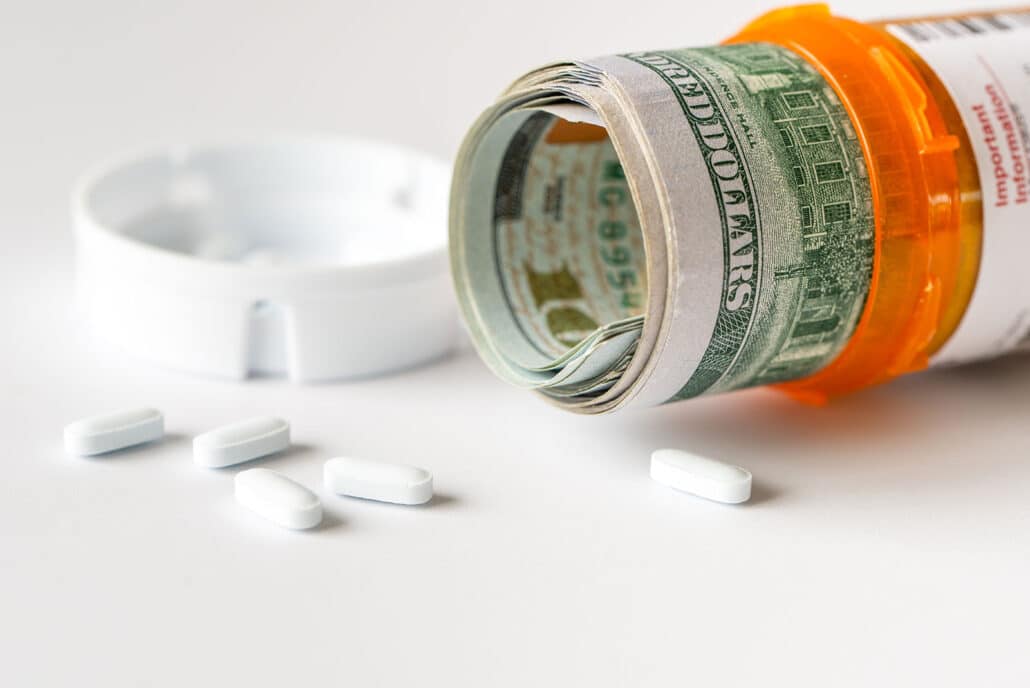When a person is dealing with addiction, they often tend to think things like, “I’m not hurting anyone else, so why should I stop?” However, the reality is that addiction affects more than just the drug user. Substance use disorders are a very widespread problem that impacts society as a whole. Understanding how drug abuse affects society can help motivate you to make positive changes.

Table of Contents
Does Drug Use Really Affect Society?
The idea of drug use being a personal matter is a myth. Using dangerous, addictive substances harms more than just the user. It can also be very dangerous for those around them. How does drug abuse affect society? It impacts our society by changing the way individual people behave. When a person is struggling with addiction, they cannot make reasonable choices. These poor decisions can snowball into major problems that greatly harm others.
Often, the people most affected by substance abuse are those nearest to the addict. Substance use can destroy relationships, harming a person’s ability to interact with their spouse, children, parents, or friends. It also makes it hard for a person to manage responsibilities like working or caring for children. This can lead to all sorts of disastrous consequences.
Addiction even harms people who are not in close contact with an addict. People dealing with substance use disorders can damage public property or injure others. They may also use taxpayer money for healthcare, housing, or even imprisonment costs.

Exploring the Costs of Drug Use
As you can see, drug abuse will affect society in all sorts of ways. To get a look at the big picture, it can be helpful to take a look at some financial statistics. Researchers have carefully analyzed all the negative impacts of substance abuse to see how much they cost society each year. Here are the estimated costs for some common types of drug abuse.
- Alcohol: Alcohol is one of the most costly substances to abuse. Society loses roughly $249 billion annually due to lost productivity, legal expenses, medical expenses, and more.
- Prescription opioids: Abusing prescription opioids in non-medically necessary ways costs society $78.5 billion. Roughly a third of these costs is due to helping opioid abusers with healthcare.
- Methamphetamine: The economic burden of methamphetamine use is estimated at up to $48 billion annually. Much of this is due to crime and premature mortality.
- Illicit drugs: Researchers estimate that all illicit drug use costs society $193 billion annually. This includes the use of various substances ranging from cocaine to heroin.
Other Ways Drug Use Impacts Society
Looking at the financial cost of drug use is one of the simplest ways of seeing its effects on society. However, lost or wasted money isn’t the only issue. There are a variety of other ways that substance use can harm society.
Decreased Productivity in the Workplace
One of the big reasons for the costs of drug abuse is decreased workplace productivity. When you are dealing with addiction, it is impossible to do your best at work. Many people with substance use disorders go to work while drunk or high. Even if they are sober, they tend to be distracted because they are thinking about how to acquire more of a drug or recovering from the effects of the drug.
Researchers have found that people with a substance use disorder tend to have a roughly 34% decrease in productivity. Of course, this does result in some financial losses for employers, but it does far more than that. The decreased productivity impacts a workplace’s potential. People are less likely to come up with new ideas or chase after new clients. They are also less able to achieve promotions or better their own career. This drastically reduces a workplace’s ability to grow, improve, and assist others.

Increased Crime Rates
Substance use is closely linked to increased crime which has a major impact on all sorts of people. When a person is under the influence, they typically do not exercise wise judgment. They are more likely to get into conflicts with others, and financial difficulties can encourage them to resort to desperate measures for their next fix. Research has shown that about one-third of all violent crimes may be linked to substance use. Substance use can also encourage theft, fraud, and other types of property crimes.
On a broader scale, addiction is also linked to criminal activities like drug trafficking and gang warfare. People who have a physical dependency on a substance often end up having to buy it from unethical organizations. Their money can contribute to drug organizations that are responsible for a variety of violent crimes.
Extra Stress on Healthcare Systems
Each year, a massive amount of time is spent helping people with overdoses, organ failure, and other side effects of drug use. This puts a massive amount of strain on our already understaffed healthcare system. Hospitals, doctors, and emergency departments struggle to provide adequate care because they don’t have enough time for every patient.
In many cases, those with substance abuse disorders cannot pay for their own care. This adds an extra burden to society. Medical professionals have to donate their free time, and charities must spend their resources helping impoverished addicts. Medicare and other national health programs often try to help with the costs, so taxpayer funds are spent on healthcare. Furthermore, emergency rooms must treat people even if they cannot pay. Hospitals start charging other patients more to offset the cost of non-paying patients.
Drunk Driving and Other Dangerous Behavior
Substance use puts many people at risk, even if they do not abuse drugs or know anyone who does. Almost all types of drugs and alcohol tend to impair a person’s judgment. They can cause aggression, paranoia, and all sorts of other problematic behaviors. This often results in dangerous interactions.
The most common example of dangerous substance use is driving under the influence. When a person is drunk or high, their impaired coordination can make them more likely to get into accidents. People who abuse substances may have an increased risk of getting in fights or abusing family members. They may also neglect children or do other negligent things that harm others.
How to Decrease the Effect of Drug Use on Society
As you can see, substance use has many negative effects on society. Figuring out ways to reduce those effects can be challenging. In some cases, the effects can be reduced with policy changes. Human rights advocates point out that decriminalizing drugs can reduce unnecessary prison sentences and weaken organized crime. Making it legal for substance use disorders to be able to test their drugs or own overdose-treating medications like Narcan can somewhat decrease impacts on the healthcare system.

However, the most effective method of reducing drugs’ impact on society is simply treating substance use disorders. When substance use disorders are demonized and treated as a moral failing, it is almost impossible for people to get the help they need. The reality is that a substance use disorder is a medical problem that deserves appropriate care. The right blend of medication and therapy can give people the skills they need to quit using drugs.
If you or a loved one is struggling with drug abuse, it is important to get help promptly. The right substance use care can help you overcome the negative consequences of drug use. When you’re ready to seek help, Long Island Interventions is here for you. We provide compassionate, effective assistance for those dealing with substance use disorders. To learn more about our services, give us a call today.
Reference section
- https://archives.drugabuse.gov/trends-statistics/costs-substance-abuse#supplemental-references-for-economic-costs
- https://www.rand.org/pubs/research_briefs/RB9438.html
- https://www.ncbi.nlm.nih.gov/pmc/articles/PMC7109245/
- https://www.unodc.org/pdf/technical_series_1998-01-01_1.pdf
- https://www.hrw.org/news/2016/10/12/us-disastrous-toll-criminalizing-drug-use
Published on: 2022-04-20
Updated on: 2025-01-22

